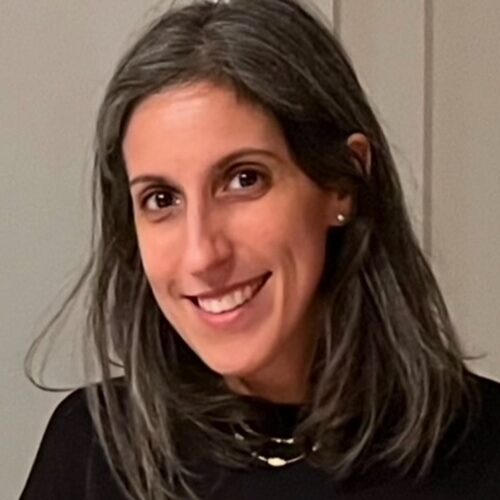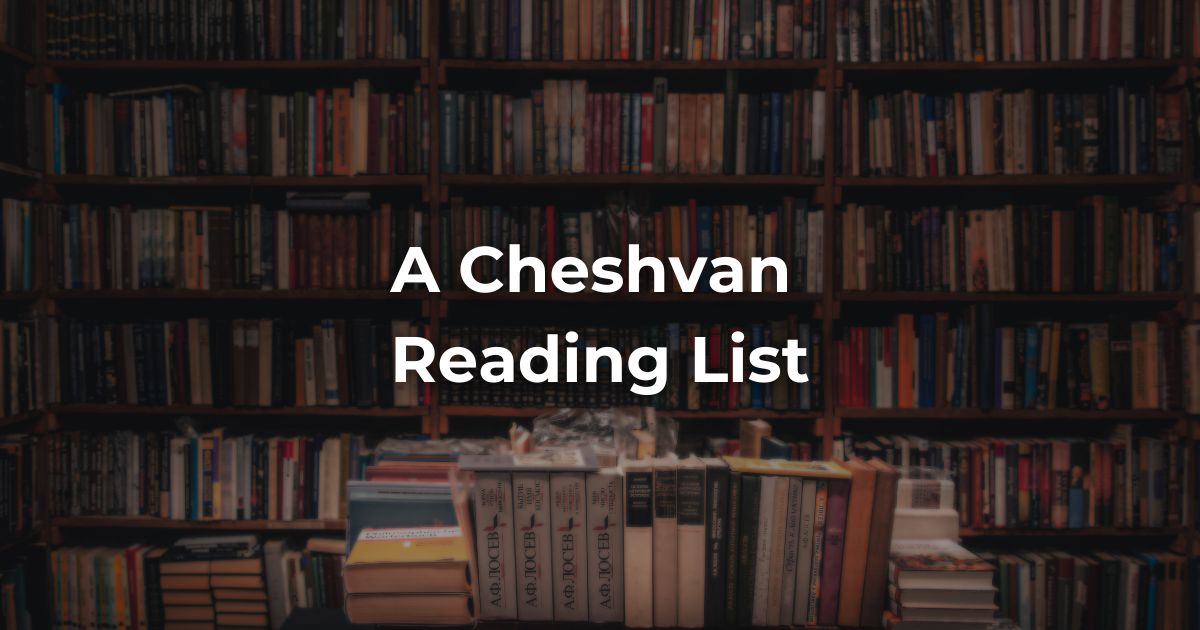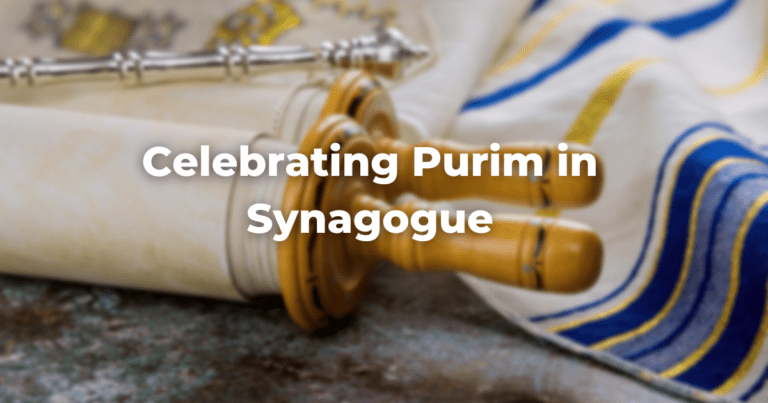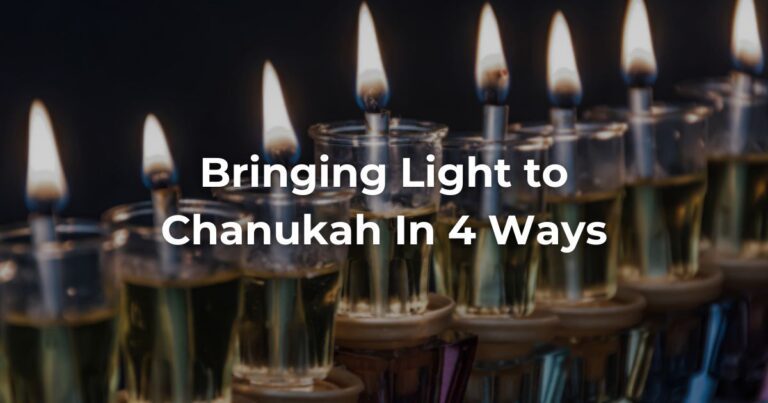It’s the month of Marcheshvan, better known as Cheshvan. Other than the Ethiopian Jewish holiday of Sigd, Cheshvan is the only month without a holiday or fast, which may explain the “mar,” or “bitter,” part of the month’s name. But after the whirlwind of the Tishrei holidays, I know I am ready for a break and some calm!
With the advent of shorter days, more darkness, and colder temperatures (for many, at least), nature is signaling that it’s getting ready for hibernation. We, too, can take this month to “hibernate” a little and reflect on the vows we made during the High Holidays. Without any festivals, this also gives us the opportunity to acknowledge the special things in our everyday lives.
Despite the lack of holidays, two major events occurred in Cheshvan: the death of Rachel, the matriarch; and Noah’s flood. Cheshvan also marks the start of the rainy season in Israel. While rain might be the last thing many of us want when the days are shorter and colder, it’s important to remember that rain helps sustain living things all around us. Rain can even feel like a cleansing of sorts, giving us a feeling of being able to start anew the next day—just like the flood represented.
If any of the themes of Cheshvan resonate with you and you’re looking for something to read, I put together a short list of books that you might want to check out:
Little Pieces of Hope: Happy-Making Things in a Difficult World by Todd Doughty
As the days get shorter and darker, it can feel really hard to find the positive—especially when the world feels like it’s upside down. Because there are no holidays this month, it’s a good time to think about the small, sacred things of everyday life: the things that seem so ordinary, so plain, but are actually really special. I love this book because you can read a page or two at a time. It has themed lists, prompts, musings—and more—of aspects of life to which we don’t typically give much thought, but that make us smile. It’s a nice reminder to appreciate the small things—and realize they might not be as small as we think.
The Place of All Possibility: Cultivating Creativity Through Ancient Jewish Wisdom by Adina Allen
This month, after the hectic schedule of the Tishrei holidays, we can take the time to do some self-reflection about ourselves and Judaism. Rabbi Adina Allen is the founder of the Jewish Studio Project, which, through workshops, instruction, and events, aims to reconnect everyone with their natural creative expression, nurtured through Jewish tradition and texts. Her book guides us to explore ourselves through creativity and art, while also using Jewish texts and teachings. Even if you don’t think you’re “creative,” chances are you’ll be surprised. You’ll find practical exercises, lots of encouragement, and plenty of inspiration in this book, which makes it perfect for those who typically don’t see themselves as artists.
The Amen Effect: Ancient Wisdom to Mend Our Broken Hearts and World by Sharon Brous
Without any holidays to anchor us or give us something to look forward to, some people might feel a little adrift right now—especially with the arrival of colder, darker days. Rabbi Sharon Brous of LA’s IKAR has written a deeply honest and thoughtful book about connection and community, especially in times of grief or isolation, and how we all can begin to heal through reaching out and connecting with others. She braids stories of congregants with those of her own, alongside Biblical stories and insights, as well as practical suggestions on how to show up, reach out, and keep going.
Naamah: A Novel by Sarah Blake
We read Parashat Noach during Cheshvan, and if you’ve ever wondered what Noah’s wife might have shared, look no further. Sarah Blake’s novel, Naamah, is a feminist retelling of the flood from the viewpoint of Noach’s wife, Naamah. We get to know her as a person and a woman, and we are given a window into her struggles and passions. This novel is a feverdream fantasy story, a sort of modern MidrashThis word is used in two ways, as both a concept and a literature. As a concept, midrash is the expansive interpretation of biblical texts. The term is used to describe the practice of rabbinic interpretation. As a text, it refers to specific collections of interpretations, particularly from the third to ninth centuries in the Land of Israel and Babylonia. Plural: Midrashim
Read more with a transgressive twist—you will never see the story of Noach and the flood the same way ever again.
As A Jew: Reclaiming Our Story From Those Who Blame, Shame, and Try to Erase Us by Sarah Hurwitz
If you’re looking for a call to action as autumn gets underway, check out this thought-provoking book that is sure to start plenty of conversations. Sarah Hurwitz’s new book looks at how antisemitism has shaped Jewish identity for many people, but also how Jews can reclaim their history and change the focus. She braids narrative nonfiction with memoir to explore Jewish history and identity, while illustrating how antisemitism can have devastating impacts on how we see ourselves. Especially in the current climate, this is a timely call for Jews to take back our narrative, learn our history, and embrace our Jewish lives.
Author
-

Jaime Herndon is a writer and editor. TalmudReferring to one of two collections, the Jerusalem and Babylonian Talmuds, edited in the 6th century, that contains hundreds of years of commentary, discussion, and exploration of the ideas in the Mishnah. One could describe it as Mishnah + Gemara = Talmud Read more, feminist Midrash, and reading all the Jewish books she can find are some of her favorite things. She's studied with Pardes, Hadar, Yeshivat Maharat, and JTS, and co-leads a local Hadar Community Group. She was a 2024 Mahloket Matters fellow with Pardes and a 2025 Pardes Pioneer fellow. Every summer, she and her son look forward to family camp at Ramah Berkshires. Currently, she's working on an essay collection about the Jewish year through the holidays.
View all posts




